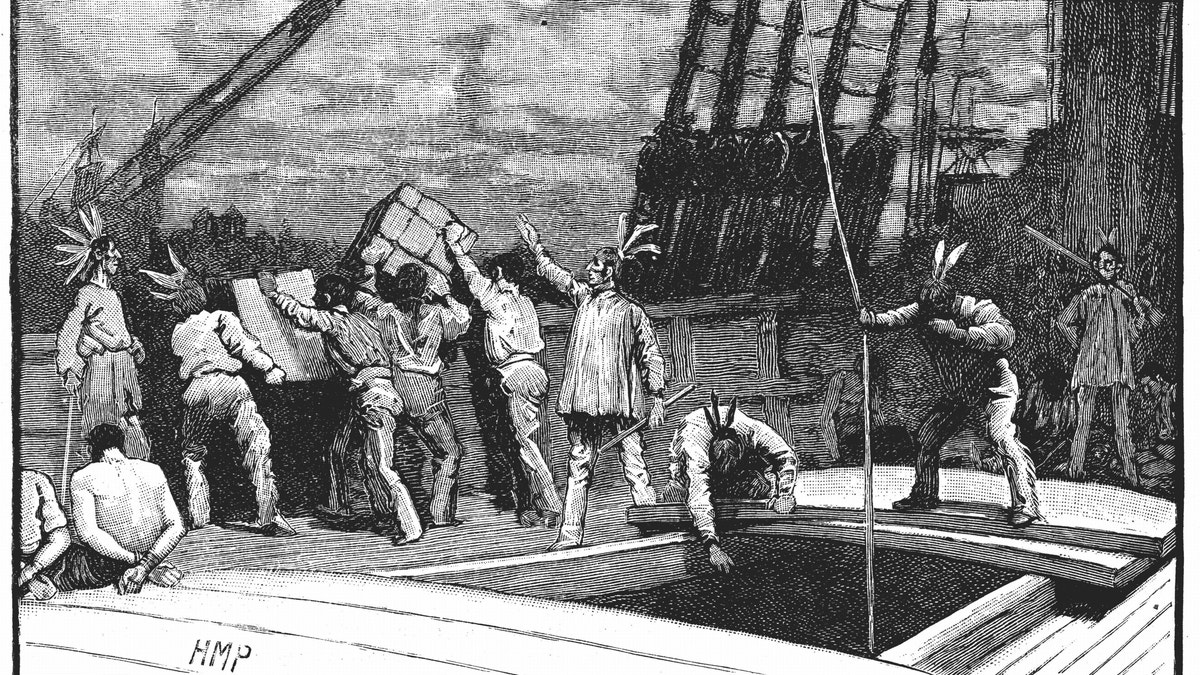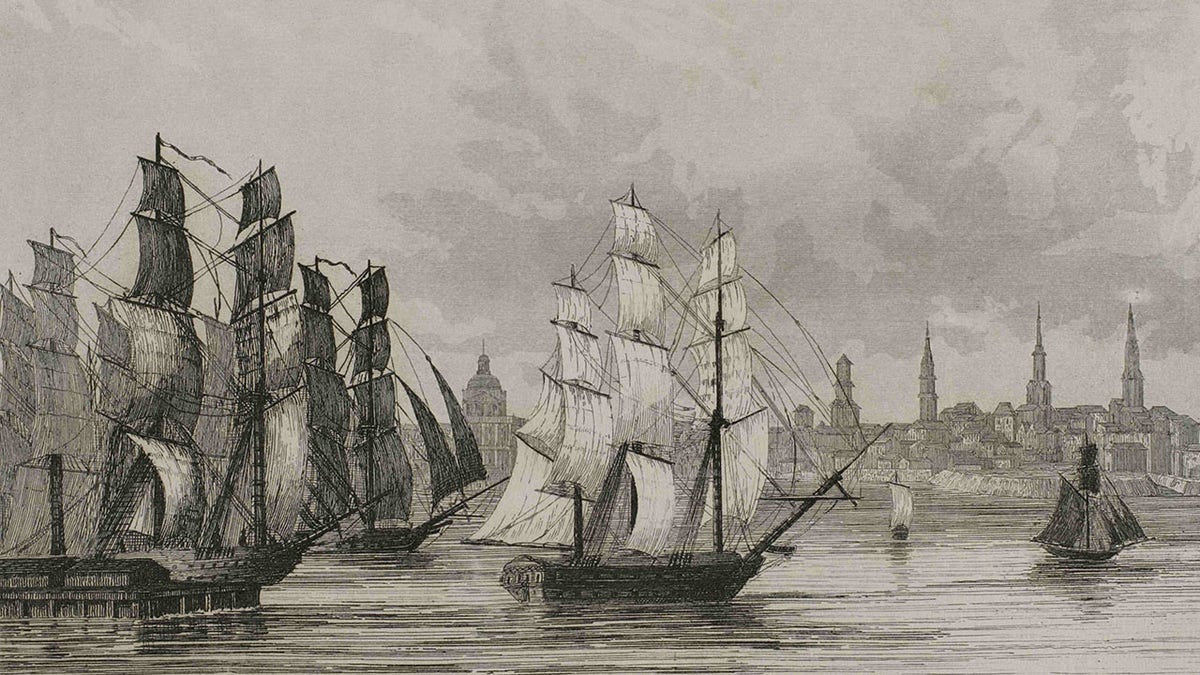Rob Lowe hosts upcoming FOX Nation docudrama on the Boston Tea Party
Actor Rob Lowe hosts FOX Nation’s ‘Liberty or Death: Boston Tea Party’ and explores one of the ‘most daring and consequential’ events in U.S. history.
A new column in the Washington Post offered a deconstruction of one of the most iconic moments in America’s founding era, wondering if the Boston Tea Party was really an act of "terrorism" done by "White men" wearing an early form of Blackface.
Post contributing columnist Theodore Johnson speculated as to whether Americans’ heroic mythologizing of the rebellious act in Boston Harbor in response to the British Tea Act of 1773 is the correct interpretation of the actual events that day.
Describing how it’s seen in Americans’ collective cultural view, Johnson wrote, "The story of that night became lore — and the lore evolved into national myth. The Boston Tea Party has come to symbolize the revolutionary spirit that led to independence. It engraved the catchphrase ‘no taxation without representation’ on the country’s cornerstone and signified the embrace of democracy."
BILL MAHER URGES PALESTINIANS NOT TO BELIEVE 'MYTH' OF 'FROM THE RIVER TO THE SEA'

Boston Tea Party, December 26, 1773. Inhabitants of Boston, Massachusetts, dressed as American Indians, throwing tea from vessels in the harbor into the water as a protest against British taxation. "No taxation without representation" Late nineteenth century wood engraving. (Photo by: Photo12/Universal Images Group via Getty Images)
However, he continued, offering another version of the events that he claimed has been "swept under history’s rug to prevent the colonists from being cast as common criminals hiding behind racist face paint."
"A horde of White men disguised themselves as Native Americans — coppering their faces and donning headdresses in the same tradition that would lead to blackfaced minstrel shows decades later — to commit seditious conspiracy and destroy private property," he wrote.
"The riotous mob trespassed on three ships and destroyed goods worth nearly $2 million in today’s money — all because they didn’t want to obey a duly passed law," he added, couching the events of that as something that many would see as punishable as a crime, or even terrorism today.
Johnson cited Benjamin Carp, the author of "Defiance of the Patriots: The Boston Tea Party & the Making of America, writing that the author sees that the incident all those years ago "now might be classified as an act of terrorism."
The column itself is entitled, "Was the Boston Tea Party an act of terrorism? It depends."
Further paraphrasing Carp, he added that the Tea Party "was principled and nonviolent, carried out by common folk who believed virtue was on their side. It was also criminal…"
LIBERAL COLUMNISTS CALL FOR AMERICANS TO 'DECOLONIZE THANKSGIVING,' PROMOTE 'TRUTHSGIVING'

An Image of Boston Harbor during the revolutionary period. (Photo by: Prisma/Universal Images Group via Getty Images)
Though Johnson’s column refrained from concluding that the classic interpretation of the Boston is harmful, he did suggest it is less true than his "White men" in Blackface view.
He wrote, "A nation’s myths — exaggerated or imagined as they might be — shape its identity. Scholars claim these myths merge fiction and truth, transform incidents into parables, become sacred and resilient in the face of scrutiny, and influence personal and group behavior."
Johnson also added that the myth is not as relatable to today’s Americans, appearing to suggest that people of color don’t see themselves represented by those original White male founders.
"They are moving stories. But the heroes of these myths don’t look like the majority of Americans today. Many of us descend from people labeled threats or, at best, sidekicks and free riders. It leaves us wondering when we’ll get to be the protagonists in a core national myth."
He added, "Being able to see yourself in a story validates both the person and the example. Harriet Tubman and Rosa Parks and Thurgood Marshall, for example, made the United States truer to its principles. They demonstrated how a previously excluded people can be the fullest expression of — not a threat to — the nation’s virtue."









































